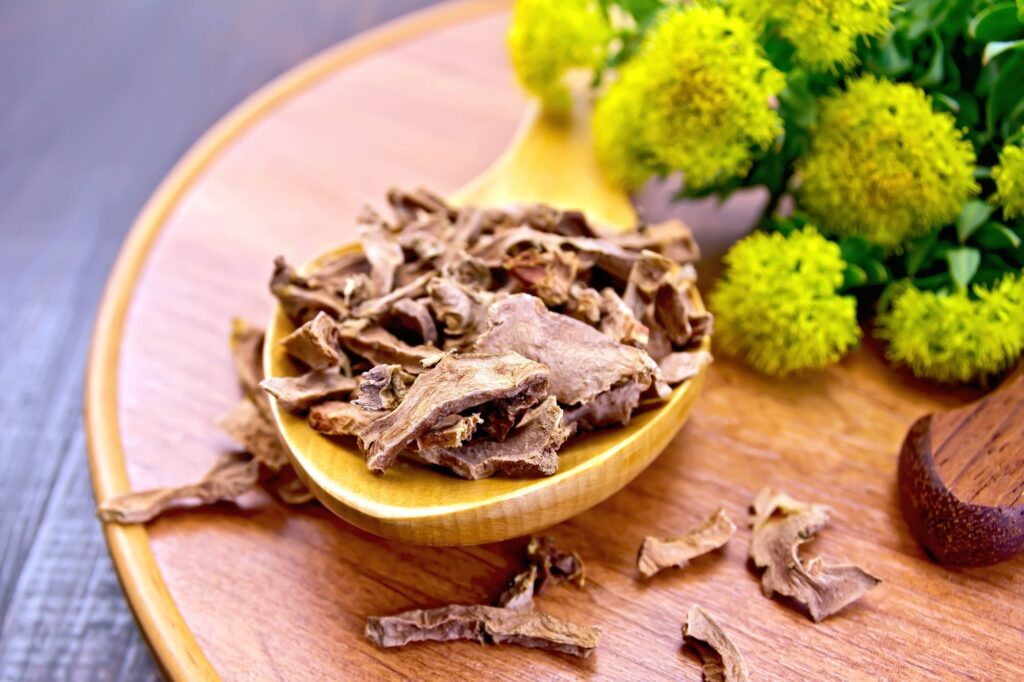
Rhodiola rosea, an adaptogenic herb with a storied history in traditional medicine, is gaining traction in modern health circles for its evidence-based benefits in reducing stress and fatigue while enhancing cognitive and physical performance. Despite its promising profile, the herb’s clinical utility is hampered by inconsistent product quality and a dearth of long-term research.
Commonly known as ‘golden root’ or ‘Arctic root,’ Rhodiola rosea has been used for centuries across Europe and Asia to boost stamina and combat fatigue. Its resurgence in contemporary wellness culture underscores a growing interest in natural remedies.
Botanical Background and Traditional Uses
Rhodiola rosea thrives in cold, mountainous regions like Siberia, the Himalayas, and northern Europe. It has been a staple in various traditional medicine systems, including Russian, Scandinavian, and Traditional Chinese Medicine, used to alleviate fatigue, anxiety, and even altitude sickness.
The herb’s primary adaptogenic compounds, rosavins, help normalize stress responses, while salidroside contributes to its antioxidant and neuroprotective effects. Standardized extracts typically contain at least 3% rosavins and 1% salidroside to ensure efficacy.
Mechanisms of Action
Rhodiola rosea exerts its effects by modulating the hypothalamic-pituitary-adrenal (HPA) axis, which regulates stress hormones like cortisol. By reducing elevated cortisol levels, Rhodiola supports a balanced stress response, aiding the body’s return to homeostasis.
Additionally, Rhodiola enhances neurotransmitter activity, including serotonin, dopamine, and norepinephrine, which may explain its mood-lifting properties. Its antioxidant and anti-inflammatory capabilities further protect against oxidative stress.
Scientific Evidence of Health Benefits
Stress and Fatigue Reduction
In a randomized trial involving 60 patients with stress-related fatigue, those taking 576 mg/day of Rhodiola extract reported a 30% reduction in fatigue symptoms after four weeks. Similar benefits were observed among nursing students, where Rhodiola improved alertness and reduced mental fatigue during exams.
In a study of over 1,100 participants, Rhodiola significantly reduced stress-related symptoms, including irritability and exhaustion, within three days of use.
Cognitive Function
Rhodiola has shown potential in reversing cognitive decline in stressful situations. A placebo-controlled trial among military cadets revealed improved reaction times and memory recall under sleep deprivation conditions. Night-shift physicians also reported enhanced associative thinking and memory with Rhodiola supplementation.
Mood and Anxiety
Limited studies suggest Rhodiola may improve mood and reduce anxiety symptoms. In a six-week study, individuals with mild-to-moderate depression experienced significant mood improvements with Rhodiola, showing fewer side effects compared to standard antidepressants.
In cases of occupational stress, Rhodiola improved well-being and reduced anxiety, though its efficacy is more pronounced in mild cases than severe psychiatric conditions.
Physical Performance and Endurance
Historically used by Siberian hunters and athletes, Rhodiola’s performance-enhancing effects are supported by modern studies. In a double-blind trial, a single dose improved endurance and reduced exertion in young adults. Elite rowers taking Rhodiola showed lower lactate levels post-exercise, indicating better recovery.
Safety, Dosage, and Side Effects
Rhodiola is generally safe for short-term use, with effective doses ranging from 200 to 600 mg/day of standardized extract. Side effects are rare and mild, including dry mouth and dizziness. However, it is not recommended for pregnant or breastfeeding individuals due to limited safety data.
Consumers should be cautious about product quality, as Rhodiola is not regulated, leading to potential variability in active compound levels. Consulting healthcare providers and choosing reputable brands is advised.
Limitations and Areas for Further Research
Despite promising research, Rhodiola’s widespread adoption is limited by small study sizes, short durations, and methodological shortcomings. Outcomes can vary based on extract specifics and population differences. Long-term effects and its use in diverse populations remain under-researched.
Larger, more rigorous trials are necessary to confirm Rhodiola’s role in treating chronic fatigue and mood disorders. Establishing standardized guidelines will be crucial as interest in herbal adaptogens grows.
Conclusions
Rhodiola rosea emerges as a valuable adaptogen, bolstering stress resilience and reducing fatigue through its impact on the HPA axis and neurotransmitter activity. Its cognitive, mood, and endurance benefits make it a compelling addition to wellness strategies.
However, variability in product quality and limited long-term data warrant caution. As research progresses, evidence-based approaches will be essential for those considering Rhodiola. Consulting healthcare professionals and selecting high-quality formulations are recommended steps for prospective users.







